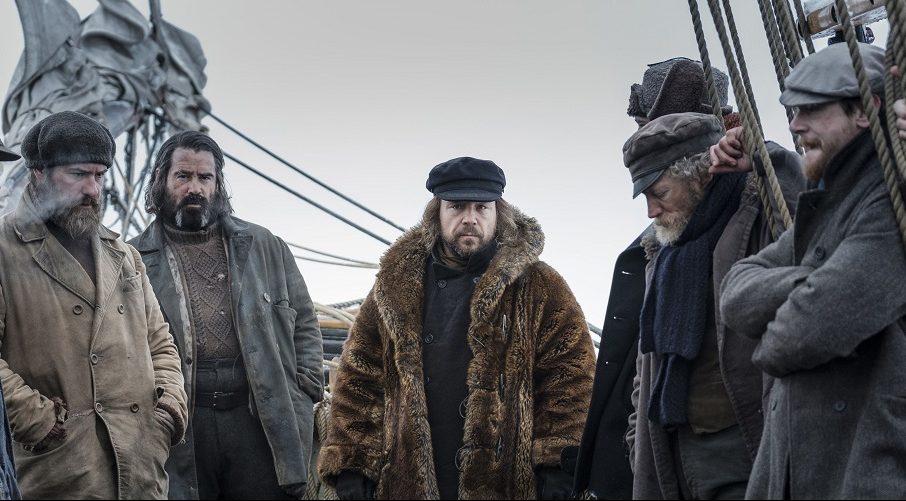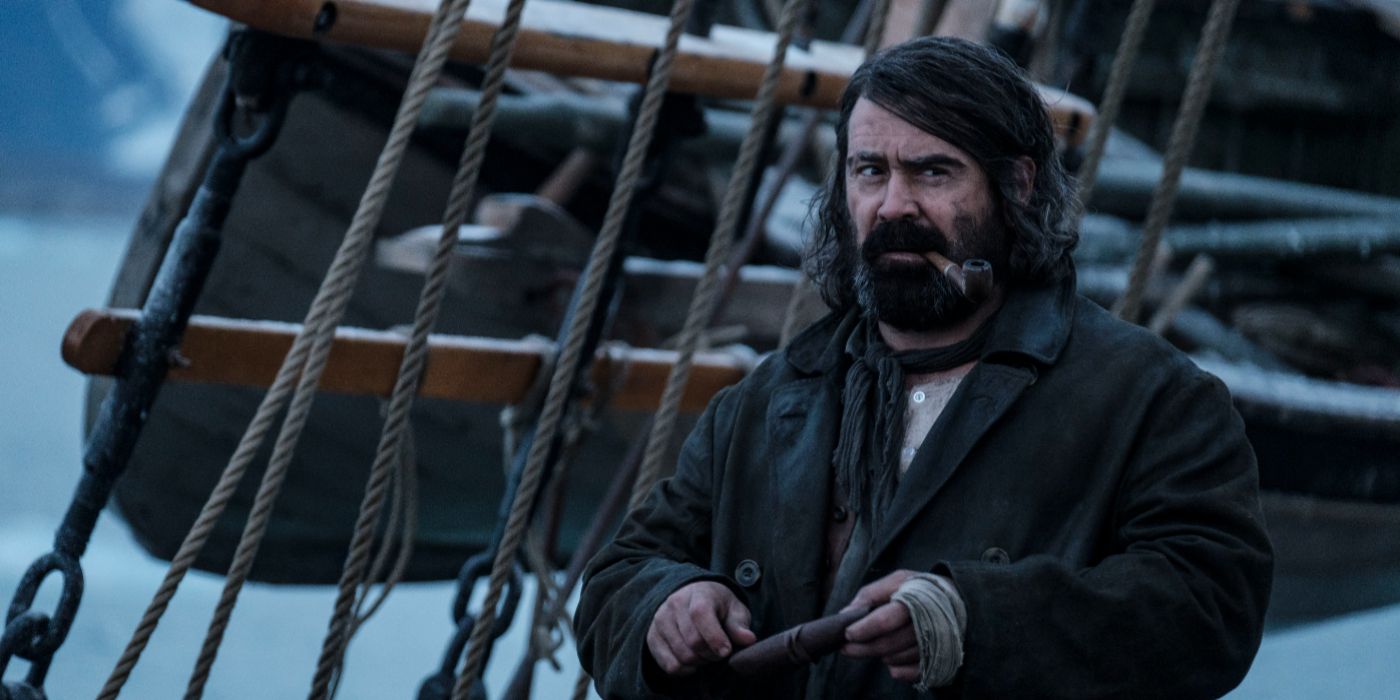‘The North Water’ is a British mystery drama series created by Andrew Haigh (‘The OA‘), who also serves as the writer and director. Set in the 1850s, the series follows Patrick Sumner, a disgraced army officer, who finds himself fighting for survival amidst the harsh weather and the presence of Henry Drax, an amoral killer, during a whaling expedition to the Arctic Ocean. It stars Colin Farrell, Jack O’Connell, Stephen Graham, Tom Courtenay, and Peter Mullan in the lead roles.
The show’s period setting and detailed look at whaling activities during the era will certainly make the audience wonder whether it is inspired by any real events or true stories. If you are looking for answers regarding the same, we’ve got you covered! Here’s everything you need to know about the inspiration behind ‘The North Water.’
Is The North Water Based on a True Story?
No, ‘The North Water’ is not based on a true story. The series is based on a novel of the same name written by author Ian McGuire. While the series and book both tell an entirely fictional story, the backdrop of whaling activities that both are set against is very much real. In the novel (and its television adaptation), the ship on which the main characters are assembled sails to the Arctic Ocean to kill whales and use their corpses for various purposes such as obtaining oil, meat, and bones. The ship sets sail from Hull, which was a popular port for whaling during the 1700s and 1800s.

The first whaling expedition on record from Hull commenced in 1754. However, after the success of the initial expedition, the industry struggled to generate returns for the next few years. In the 1760s, whaling activities saw a boom due to a tax imposed on importing oil and bones. As a result, many shipowners turned their attention to whaling, and the industry flourished.
However, by the 1860s, the industry was on its last legs mainly due to the risks associated with the job, the rise of Scotland’s steam-powered whaling ships, and the decline in demand for whale oil. Using the history of whaling, McGuire crafts a beautiful and gripping interconnected story of interpersonal conflicts between the crew members and underlines the perineal conflict between man and nature. Many critics have praised the novel for its realism and pragmatism.
In an interview with Historia Magazine, McGuire spoke about the inspiration behind the novel. He revealed that the idea for the book came from the research he did for a biographical novel on the life of celebrated author Herman Melville, who had spent a part of his life as a whaler. During his research, McGuire also read a diary written by Sir Arthur Conan Doyle when he spent a summer on a whaling ship as a 19-year-old medical student.
McGuire noted that while the diary is intriguing, it doesn’t contain any traces of unusual forms of storytelling. The fact that Doyle, a master of whodunnits, was compelled to writing such a piece of literature drove the author to write a murder mystery set aboard a whaling vessel. However, McGuire’s story isn’t a whodunit, and by revealing the killer early on, McGuire is able to focus on creating detailed and realistic descriptions of the violence and the interpersonal as well as moral conflicts.
Creator Andrew Haigh shared his thoughts about the novel in an interview with IGN. “I love that it was purely fictional. And even in the story, it’s a world that’s fading away, set in the 1850s when the whaling trade was dying out. And so, it felt like a window into a past, and it’s not that far away,” he said. Therefore, from the words of the novel’s author and the show’s creator, we can incur that the series is primarily a faithful adaptation of the fictional novel. The story’s realism is deeply rooted in the author’s meticulous research and careful use of historical references.
Read More: Best British/BBC TV Series on Netflix


You must be logged in to post a comment.